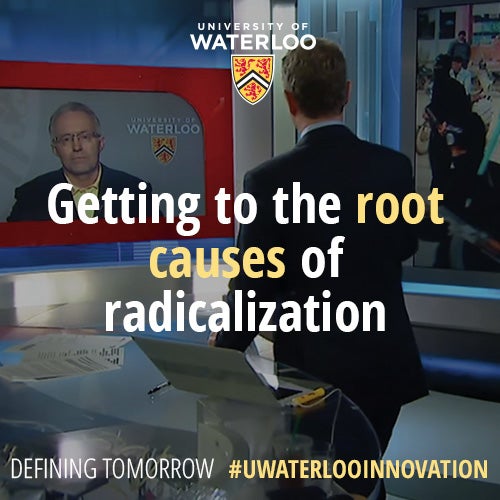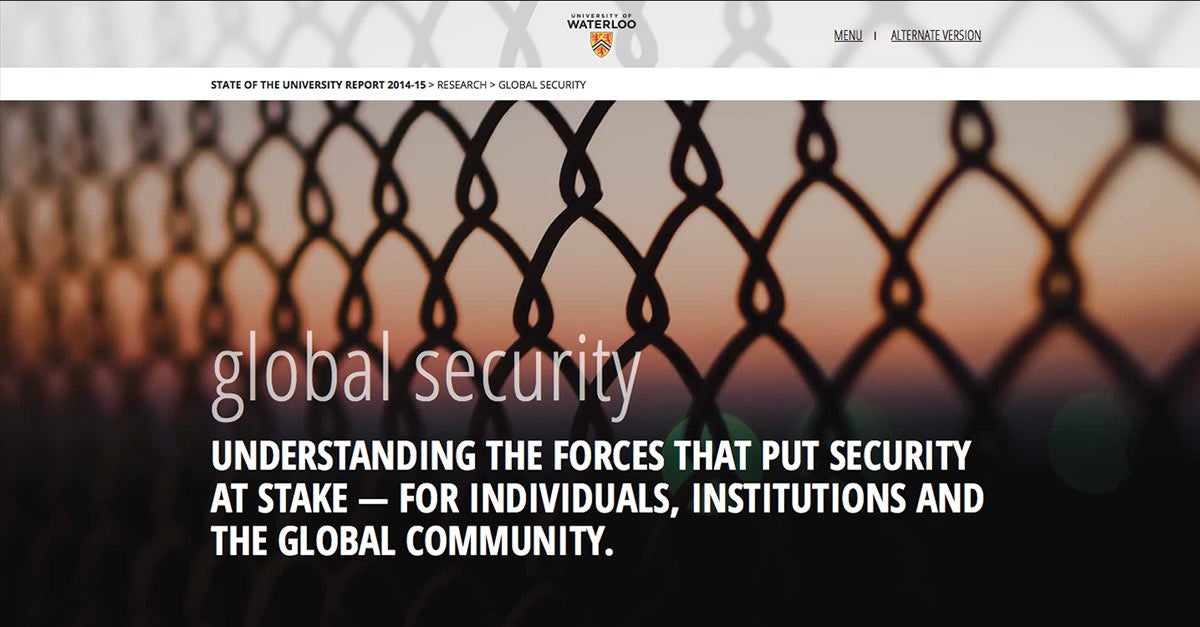

Understanding the forces that put security at stake — for individuals, institutions and the global community.
In an age of uncertainty, Waterloo’s experts in global governance, public security, computer science and civil liberties are enabling a safer, more sustainable and secure environment for Canada and the world.
Since 9/11, extremism and terrorism have become critical concerns worldwide. While counterterrorism institutions focus on surveillance and stricter laws, Lorne Dawson, a professor of sociology in the Faculty of Arts, is getting to root causes. He leads research on the social and cultural factors contributing to ordinary Canadians becoming extremists who may potentially engage in violence at home or overseas with terrorist organizations. As a pioneering expert on religious radicalization, Dawson has become an authoritative source for the media and a respected advisor to governments and police forces across the country.
Lorne Dawson is frequently interviewed by national media, including the Canadian Broadcasting Corporation, regarding religious radicalization.
Online social networks have dramatically changed global connectivity, enabling new ways for groups to organize and challenge the status quo.
Using mathematical models, Hans De Sterck, a professor of computational mathematics in the Faculty of Mathematics, is giving shape to the way social uprisings like the Arab Spring spread through social media. Affirming that uprisings gain traction online, De Sterck and graduate student John Lang demonstrate through their research that the ability to share posts while avoiding government censorship increases visibility with a broad audience, fuelling momentum and potentially tipping the scales from unrest to outright revolution.
Citizens around the world indicated their support for the Arab Spring uprising via social media, including Twitter and blogs. Photo: Chris Carter (IMB)
Kuwait Stock Exchange.
Past and current conflicts in the Middle East have created a complex web of instability in the region, yet millions of citizens in these countries must continue to live and thrive in their daily lives. As an internationally renowned expert on the Arab Spring, Bessma Momani, a professor of political science in the Faculty of Arts, examines the liberalization of Middle Eastern states and the geopolitical forces affecting their economies. Putting knowledge into practice, Momani provides highly informed analysis and strategic advice to public and private sectors on advancing Middle East markets to contribute to economic stability locally and globally.
Centre for International Governance Innovation (CIGI) senior fellow Bessma Momani at a pre-Summit conference in Brisbane surveys the G20 leaders’ 2014 Summit initiatives for accelerating global economic growth by an additional two per cent, including new spending on infrastructure, commitments to increase the participation of women in the labour force and measures to tackle tax avoidance.
Critical to good health are sustainable crop growth practices and policies. Photo: Neil Palmer/CIAT
Guaranteeing food security for the world’s citizens is a critical challenge as we move into the future with a growing population and uncertain climate. Today, the global food system leaves over 800 million people hungry. Canada Research Chair and Trudeau Fellow Jennifer Clapp, a professor of environment and resource studies in the Faculty of Environment, is tackling this challenge. Clapp provides policy recommendations that will help to improve global governance arrangements to better ensure both environmental sustainability and improved access to nutritious food, especially in the world’s poorest countries.
Jennifer Clapp shopping for locally sourced produce at St. Jacobs Farmers’ Market, near Waterloo.